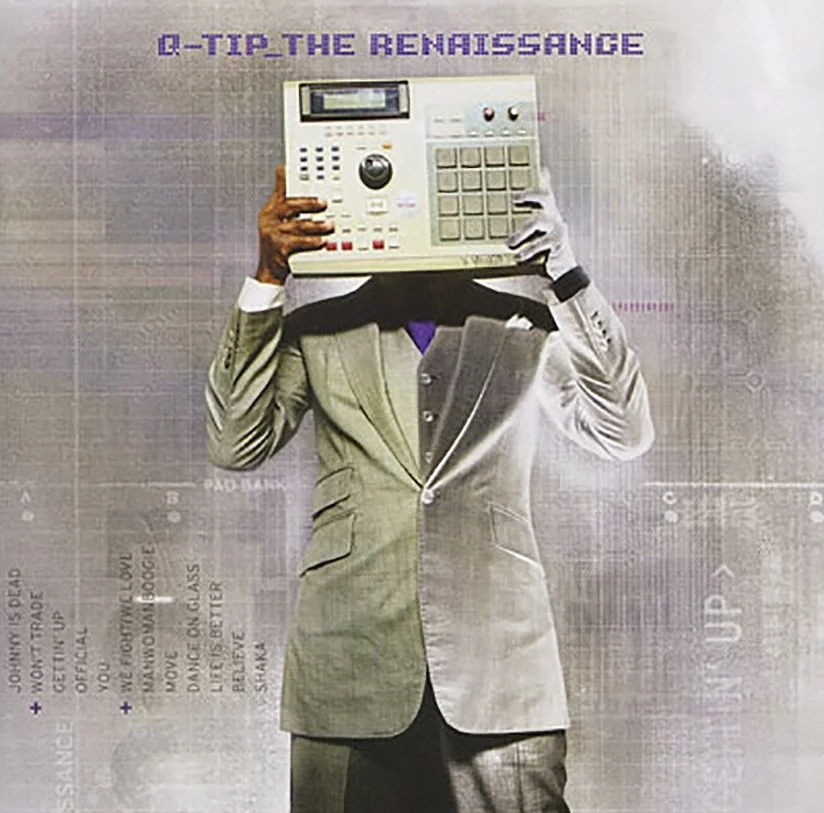Way Back: People's Instinctive Travels and the Paths of Rhythm (1990)
“The ghetto beat with a ghetto poem
Yeah, it's from the heart, 'cause it's from the home”
- Q-Tip on “Rhythm (The Art of Moving Butts)”
On April 10, 1990, A Tribe Called Quest released their debut album, People’s Instinctive Travels and the Paths of Rhythm on Jive Records.
The Queens-bred crew would originally consist of Q-Tip, Ali-Shaheed Muhammad, and Jarobi White. While Phife Dawg appears on four songs, he didn’t become an official member until the following album. Ali was the DJ while Jarobi was a silent presence, whose influence didn’t always make it to wax. Q-Tip seemed to be the group’s driving force. It was his battle rap’s from high school that helped him to meet Al-Shaheed, then his guest verse on the Jungle Brother’s debut album (“Black is Black” and “The Promo) that made the dream seem real. They were the ones after all that came up with the full name “A Tribe Called Quest”.
Tribe and the rest of the Native Tongues collective gave a contrast to the traditional rap crews. They didn’t have to keep reminding listeners how hard they were or how many ladies they got. They chose to deliver more societal messages while opting for some playful bars where necessary.
Afrocentric living, Africans be givin'
A lot to the cause, 'cause the cause has been risen
Tribe was blatantly pro-black before it was cool. Just look at some of Q-Tip’s attire when they began. Their album artwork was entirely red, black, and green, giving a more subtle message on what could be expected when you press play.
I am what I am, that's a tribal man
We all know the colors, we all must stand
An important part of their formula are the songs you can just jam and laugh to along the way. “Luck of Lucien” tells the story of a French MC trying to assimilate to American culture. “I Left My Wallet in El Segundo” could be the plot of a classic teen movie. “Ham n’ Eggs” made a push for vegetarianism in the black community to avoid the health conditions that their traditional dishes inflict. In correct order, Tip addressed STDs on “Pubic Enemy”, then serenaded a nicely-shaped lady on the classic “Bonita Applebum”. This is likely their most sampled and referenced track lending inspiration to an array of artists including Wylclef and Jay Z.
“Can I Kick It” is probably the first track to really embody the Tribe sound. Tip and Phife trade verses that sound simple, but are loaded with positivity and an intro to their identity. Phife sums it up best when he rhymes:
When it comes to rhythms, Quest is your savior
Follow us for the funky behavior
“Footprints” commands multiple listens, as Tip has an alternate meaning for the song's title. Even from the group’s debut he stressed to listeners that he wanted to leave a positive cultural impact. That impact would be the group’s “footprints” and he estimated it would last much longer than any amount of cash they’d get from this musical venture. He was right.
The legacy of this album can still be felt three decades later. It was the first to receive Source magazine’s five mic rating. The magazine called it “a peaceful tone that can stand on its own. Tribe helped to open the door for alternative rap at the outset of the 90s. We probably never get a Kanye, Pharrell, or Outkast without the themes on this debut, just as we may never have seen all the eclectic branches of hip-hop that exist today as a result of their willingness to experiment with the hip-hop sound. Tribe really did leave those footprints that Q-Tip rapped about three decades ago, and the path he paved is undoubtedly an instinctive one.






